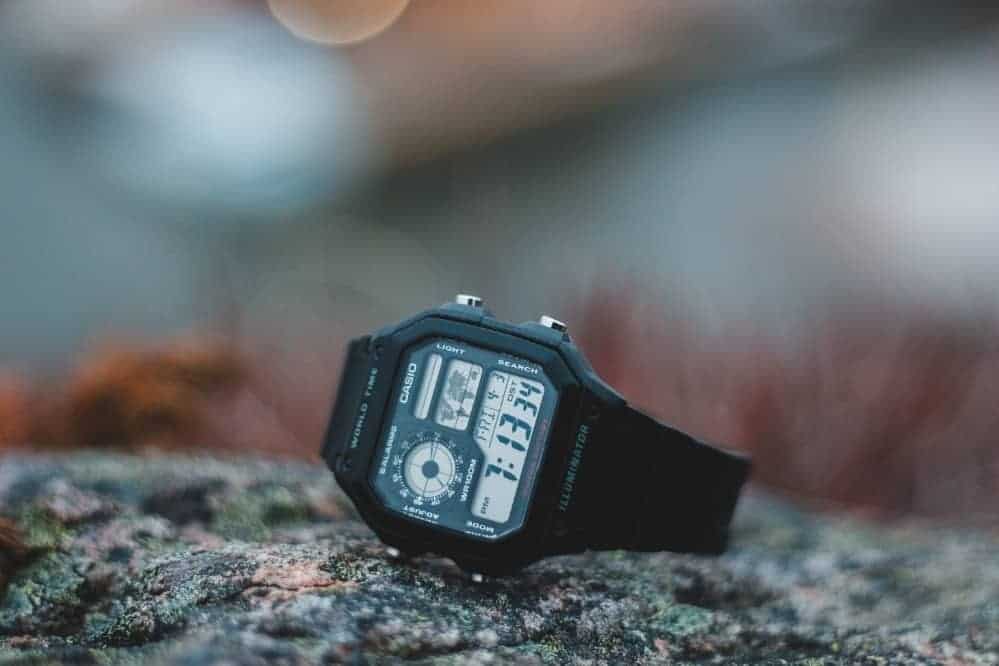When you start shopping for your next watch, you’ll find yourself with a lot of decisions to make. Should you choose a mechanical or quartz watch? Digital or analog? Wind-up or automatic? These decisions, for the most part, are a matter of preference because all of these types of watches are considered “good” watches.
That being said, if you’re choosing between a digital and analog watch, the first thing you’ll likely ask yourself is, which one is more accurate? Let’s face it; we all want our watches to be accurate because that’s why we’re buying a watch in the first place!
Which One Is More Accurate?
As a general rule, digital watches are a bit more accurate than analog watches. This is mainly because digital watches are usually quartz watches, and quartz watches are more accurate than mechanical watches. Of course, if you find an analog watch that is also a quartz watch, the two watch types will be equally accurate.
If you wish to know whether a certain watch is mechanical or quartz, just take a look at the second hand. A mechanical watch’s second hand will have a smooth, sweeping motion as it moves from one number to the next. On the other hand, the second hand on a quartz watch is going to have a ticking motion from one number to the next.
Regarding this accuracy, here is the difference: a standard quartz watch is usually off by 15 to 30 seconds per month, whereas a standard mechanical watch can be off by 5 to 20 seconds per day. And while quartz watches can lose accuracy with age, this is usually due to corrosion of the internal components, which can be remedied by bringing it to a watch repair expert to be serviced.
Mechanical vs. Quartz Watches: The Main Differences
Mechanical watches have a wound spring that powers the watch. The spring stores energy and transfers that energy to numerous springs and gears, which regulates the release of energy to make the watch work.
Quartz watches use a battery as their power source, and it sends an electrical current through a small quartz crystal that creates vibrations which keep the movement oscillating and the motor moving the watch hands. These oscillations are always more accurate than the physical movements of a mechanical watch.
5 Factors Affecting Digital Watch Accuracy
Since both analog and digital watches experience differences in how accurate they are, and since digital quartz watches tend to be the most accurate, it’s good to know about some of the factors that can affect their accuracy. Here are five of those factors:
1. Gravity
The natural forces of the universe — in other words, gravity — affect the accuracy of a watch. In a mechanical watch, the accuracy can be affected by gravity because its parts are always subject to gravity’s pull.
In a quartz watch, which most digital watches are, it’s not even an issue. Why? Because regardless of the effects of gravity, a quartz crystal will continue to oscillate in the exact same manner. For all practical purposes, gravity just doesn’t matter with a digital/quartz watch.
2. Air Pressure
When air pressure varies, digital watches can be affected. When air pressure increases, the quartz crystal vibrates a little slower because it is slightly inhibited. This causes the watch to run a little more slowly. When air pressure decreases, the crystal vibrates a little faster, which causes the watch to run a little fast. Still, even with these variations, a digital quartz watch still loses or gains no more than 30 seconds per month.
3. The Overall Quality of the Watch
Naturally, the quality of the watch is going to affect its accuracy. Remember, good electronic components are necessary to have an accurate watch. While quartz crystals still oscillate at 32,768 vibrations per second in a low-quality watch just the same as they do in high-quality watches, if the components that help operate the watch aren’t good enough, the accuracy of the watch is going to be affected.
4. Temperature
The temperature can affect a digital watch because when the temperature is higher, the quartz crystal in a digital watch gets a little more energetic, so to speak, which causes it to run a little faster. By contrast, a lower temperature makes the crystal go a little slower, which means the watch will run a bit slow. But again, the total time per month that the watch is fast or slow usually equals no more than 30 seconds per month, which is only one second per day.
5. The Movement Itself
Movement on a mechanical watch is not electronic, but a quartz watch movement is. The quartz is a mineral that vibrates, and when you run a current through a quartz crystal, it will swing at a constant frequency.
This is important because all timepieces need something constant in order to measure against time, and the constant frequency of a quartz crystal does just that. Mechanical watches don’t have this, which gives quartz watches a definite advantage.
